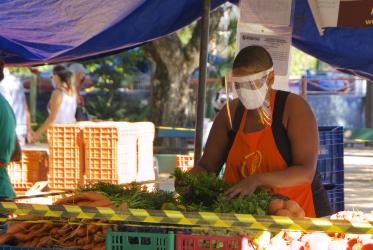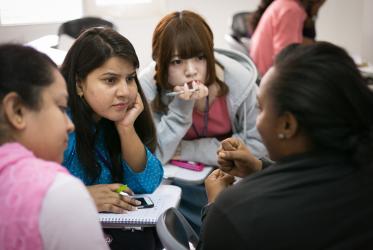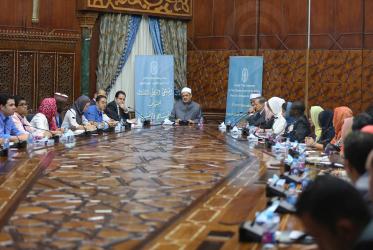Displaying 1 - 20 of 43
Applications open for upcoming Young Adults Training for Religious Amity
15 September 2022
Dr Abuom reflects on women of faith as healers of creation
05 October 2021
A passionate Korean feminist and ecumenist
21 August 2019
Unifying faiths in peace and harmony through dialogue
10 April 2018
G20 summit: call to pray for peace in Hamburg
07 July 2017
Plans for 2017 decided by WCC Executive Committee
01 December 2016
Grand Imam calls for collaboration against violence and poverty
06 October 2016















